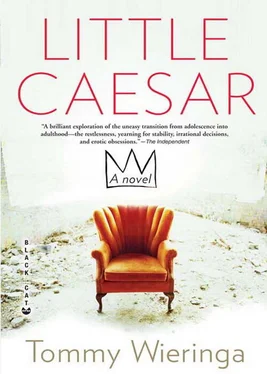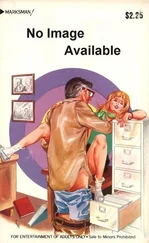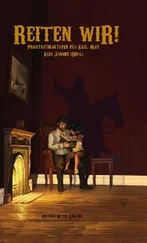‘Six films. Six .’
‘It wasn’t a crime, Ludwig.’
‘Prostitution is illegal.’
‘They were films. I’m not proud of it, not at all, but I’ve never regretted it terribly either. I can imagine. . for you it’s different, it doesn’t have anything to do with you. You weren’t even. .’
‘How could you?’
‘I’m not my body, Ludwig, it’s just a vehicle. . I didn’t hurt anyone, on the contrary. Except for you, now. But you weren’t even around then, you can blame me for it but you mustn’t hate me for it, sweetheart. Okay? You mustn’t hate me for it.’
I had no words left. Not one.
‘Ludwig, would you please not look at me that way? Your father used to look at me that way. So. . full of disgust.’
Two tears, the one beginning its descent before the other.
‘I don’t want you to look at me that way, do you understand?’
In the days that followed the subject came up a few times. She didn’t ask for understanding, she explained the circumstances under which it had seemed more or less normal to her to act in porno films. I noticed that knowing about the background to it watered down my rage. It reduced the distance between me and that gross blunder. In other words, life went on. It sought a balance between extremes, and kept on doing so until a certain degree of everydayness returned, a way to go on. It wrapped itself around the alien irritant like an amoeba around a bacteria.
At the club, they already knew about it. I was sure they talked about it when I wasn’t around. Sly jokes were made on occasion, but I learned to live with it. A well-known saying has it that football is a gentlemen’s game played by thugs, while rugby is a thug’s game played by gentlemen. Among footballers I would have suffered social damage, but at the Alburgh Rugby Football Club I was given consideration, and not condemned — something I have always credited to the degree of refinement that goes along with rugby.
On the field I became more reckless. The technically perfect tackle is one thing I never mastered, so I simply threw everything I had at my opponent, sometimes with surprising results. I played in the second row and was injured as often as I was not. One recovers quickly at that age. While making one of those insane tackles, I broke my collarbone. They said the boy I hit came from Sizewell, home to the nuclear power station whose dome we could see on the horizon on clear days, like a pale, setting sun. It felt like smacking into a bus. The boy could not have been older than seventeen, but he already had a bushy moustache. An injury bears the signature of the one who caused it — for the rest of my born days, I will never forget that boy from Sizewell.
The English have a useful expression: ‘adding insult to injury’.
A letter arrived at our house from the district council, signed by the local secretary, A. Brennan. In it we were summoned to leave 15 Flint Road before 21 October. If we left within the time allotted, the council would see to the razing of the house, the removal of the debris and the cleaning of the plot. If we did not comply, the damages — including the cleaning of the beach below — would be recouped from us. If asbestos had been used in the house, the damages could be even more considerable. The tone of the letter was bland, as though we were being asked to no longer put our rubbish out for collection on Tuesday, but on Wednesday. The date, 21 October, was repeated in the final paragraph; on that day, gas, water and electricity would be cut off.
We had landed in the danger zone, there was no denying it. All those years the abyss had been stalking us in a slow, creepy dream, now it was about to pounce.
The day the letter arrived, the outside eastern wall of the house was still four meters from the edge. It could take years, but it could also happen that same winter. My mother was at the table, the letter in front of her.
‘They don’t waste any time,’ she said.
I read the letter twice and found no reassurance in it anywhere, nothing about replacement housing or compensation. We were caught between erosion on one side and official pragmatism on the other. My mother was sitting straight up in her chair. The memory of her, copulating.
‘What about the insurance?’ I asked.
She smiled grimly and shook her head.
‘What do you mean?’ I asked.
‘Nothing.’
‘Come on.’
‘You can’t insure yourself against things like this. I tried everywhere, almost every insurance company there is. Their argument was that we were aware of the risk when we moved in. We. . I. . accepted the risk.’
‘So what now?’
No reply came. I more or less understood what was looming over us: no house and no escape route either; family and friends were nonexistent. We were consigned to each other. She had bought this house with the proceeds from the house in Alexandria; we had been living off the remainder, and off her savings. Now her investment was crumbling quickly. The letter from the district council reduced the value of our property to a debt. I wasn’t sure she really saw the extent of the catastrophe. Her composure was outrageous. In the privacy of her bedroom, I suspected, she turned to her mentors for support; the bearded men with piercing eyes to whom she went for counsel. She was convinced that there was a higher plan behind everything. Events like this were learning moments. The assignment of meaning, favorable or not, provided comfort. The bitterest reality could be borne as long as you saw meaning in it. The primeval defense against the void. Her conviction had nothing to do with God, she said, but if you looked carefully you could make out his shadow on the floor.
I went upstairs and kicked my desk. Framed by my window was a kite, veering wildly. Behind it the glistening sea.
That evening I shoveled Margareth’s fish pasties into my mouth in huge chunks.
‘I’ve been thinking, Ludwig. .’
‘Hmm. .’
‘. . but we’re not leaving. We’re staying here. This is our house, and they can’t force us.’
I frowned in puzzlement.
‘Without gas? Water? Light?’
‘I showed the letter to Warren. He says it would be no trouble putting in a few pipes and cables between his house and ours. And we can buy bottled gas in the village. See it as a sort of camping. Warren will give us all the help we need.’
‘Yeah, because he feels guilty.’
It was around that same time that the first layer of sand and clay was dumped along the base of the cliff below our house. Pending the verdict of the court of appeals, Warren had resumed work. From the day the letters began arriving, we lived in limbo. There were letters from lawyers, from the power company, the waterworks, municipal summons — my mother used a clothes-peg to clamp them to the lamp above the table, thereby giving fate a festive touch.
It often takes a long time, but once the powers-that-be bundle their rays into a searchlight there is no escape. The linkage of information is a steel fence that slowly closes in. An all-encompassing authority, impersonal as a chemical process, had nestled in our life. The date was written on our lintel. The day would come — and distant as it seemed when the first letter came, just as quickly did 21 October arrive. It was a Saturday, however, so nothing happened. But on the very next working day the flame died in the geyser. The heating went off. A few weeks later, a van from Eastern Electricity pulled up and parked along the road. Then the lights were gone too. Water no longer rattled in the pipes. Warren dug a trench to our house. Switches and wall plugs suddenly became useless ornaments, the telephone stopped working. Within a few days Warren had seen to all these things, a strip of churned-up soil bound his house to ours. My bedroom window was now permanently misted over because of the paraffin stove I used to heat the room. Margareth cooked with bottle gas. But no matter how skillfully our lives skirted these obstacles, we were aware that — however you looked at it — these were the final days . That lent them a certain beauty and significance. Time possessed a degree of urgency for which I would later search in vain.
Читать дальше












